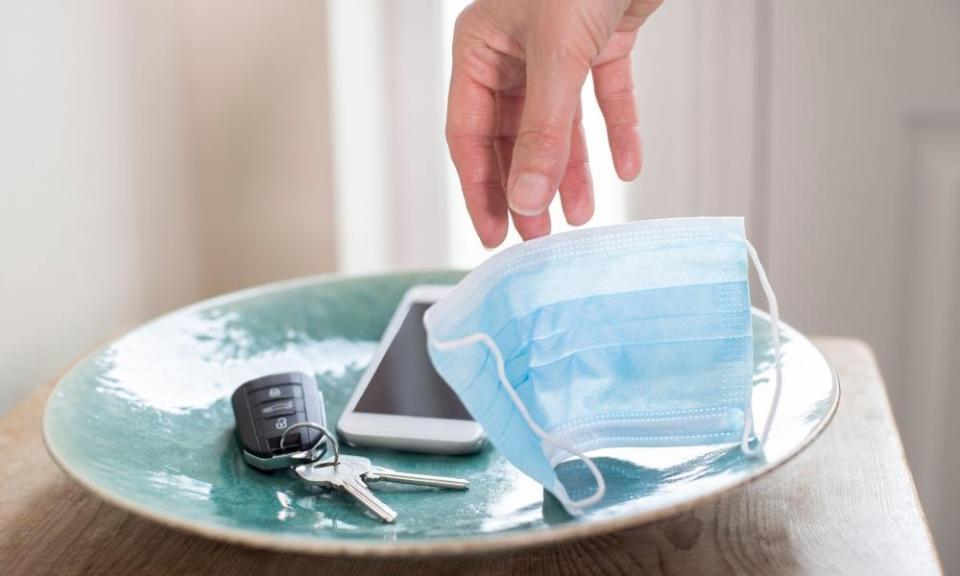What will changes to England's lockdown rules mean for me?

Lockdown measures in England are set to be eased from 1 August, the prime minister has announced, with employers told to encourage people back into work, and more leisure and entertainment options reopening.
Will I have to go back into the office?
Not necessarily. Early on in lockdown, the government said that anyone who could do their job from home should do so, but that guidance is set to change. From 1 August, the prime minister said employers would have more discretion. “That could mean of course continuing to work from home … Or it could mean making workplaces safe by following Covid Secure guidelines.”
In practice, this will mean offices reopening where companies feel that they can get people back in while keeping them safe and well. Some employers will find this harder – they may have limited space, or less capacity to cover the deep cleans that will be needed, and will opt to continue with at least some of their staff working from home.
You can refuse to go in if you believe there is a real danger to you in doing so – raise this with your employer in the first instance as it may be able to rearrange things and put your mind at rest.
What if I am in a vulnerable group or live with someone who is?
The shielding programme in England will be over by then and no special rules have been put in place to protect people in vulnerable groups who are asked to go into work. But some already exist – if you are disabled or pregnant, for example, your employer has extra obligations to look after you.
If you are pregnant your employer is obliged to make sure you can do your job safely. This can mean allowing you to do your job from home, or giving you a new role which can be done remotely. If your employer refuses either of these options you should take advice – your union, Acas or Citizens Advice are good places to start.
What if I have childcare to worry about?
Legally, you can take time off to look after any dependants – these could be children, or older relatives. This time is typically unpaid. If you are currently furloughed and your employer does not have enough work for everyone to go back full-time, they may agree to leave you on furlough so you can continue to earn 80% of your normal pay. However, from August they will have to contribute to your salary, so may be keener to arrange for you to work part-time if that is possible.
How will I get to work?
If you usually travel by bus or train this will be allowed again, although the government is encouraging people to consider alternative forms of transport where possible.
In London, TfL has increased services, but is providing walking and cycling maps to encourage people to travel under their own steam. Some employers may be able to offer car parking facilities, although in city centres this will be hard. Bike sales have already leapt during lockdown and are likely to increase further as more people are asked to return to their workplace.
In England, Scotland and Northern Ireland passengers must wear face masks on public transport, and in Wales that will become the case on 27 July.
What else is being reopened?
Bowling alleys, skating rinks and casinos will all be allowed to open their doors from 1 August. As with other sectors, the government will provide guidelines on how this can be done safely. These activities tend to involve equipment that is shared by customers, so lots of sanitising is likely to be required.
Beauticians will be able to offer more treatments, including facials and eyebrow threading and, if all goes well with some pilots taking place this month, indoor live performances will be able to start again.
Gyms and sports facilities are already set to reopen a week earlier on 25 July.
What can’t I do?
Business conferences are still not allowed – if infection rates do not bounce back, the government hopes to allow these from 1 October. Nightclubbing and soft play will both still be off the agenda too.
Most sporting events will happen behind closed doors until October, although the world snooker championship in Sheffield, the Glorious Goodwood horse racing festival and two county cricket friendly matches will be used as test events with limited crowds.
If you are getting married, from 1 August you will be able to hold a reception for up to 30 people, but bigger wedding parties will still be banned. This could be a good time to save money on your big day.
What if infections increase?
This all hinges on the infection rate staying as it is or falling, so a rise in infections would mean plans put on hold. Councils have been given new powers from Saturday which will let them close specific premises or public outdoor spaces and cancel events if they are concerned about an outbreak in their area.

 Yahoo Finance
Yahoo Finance 